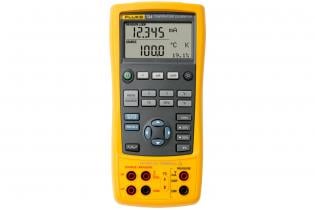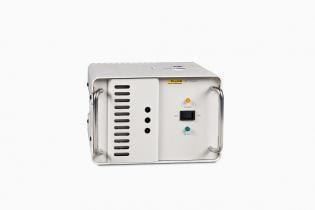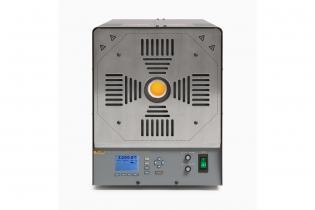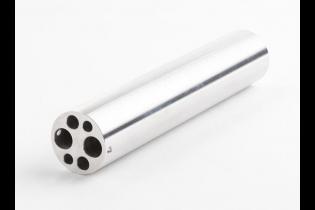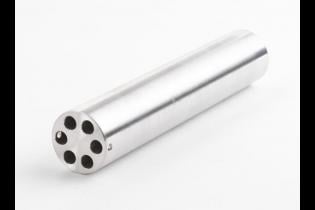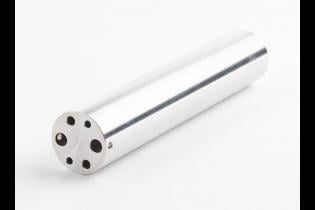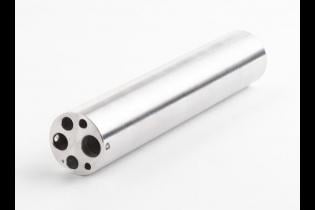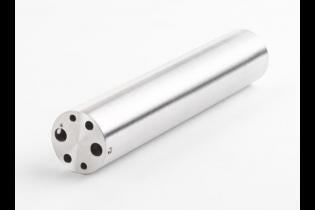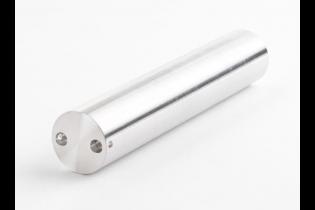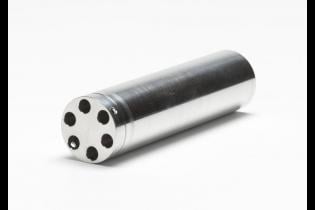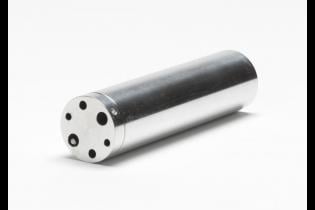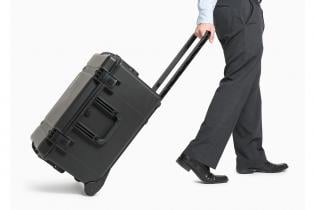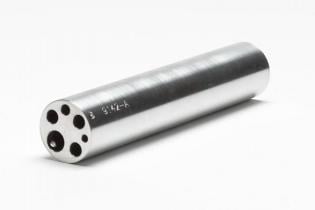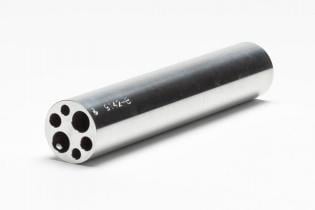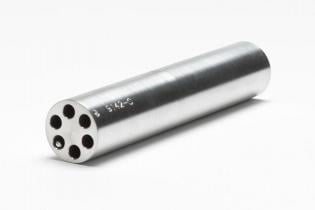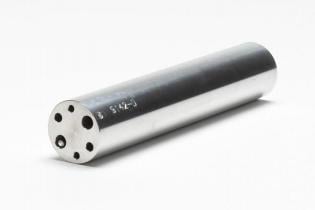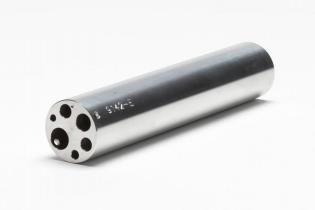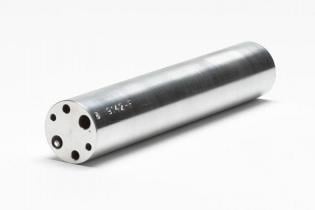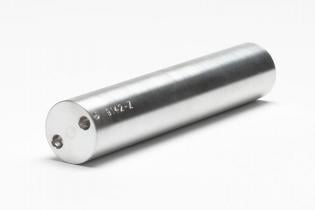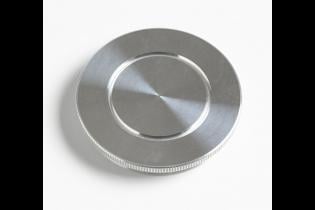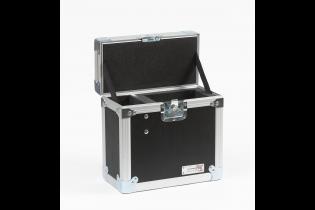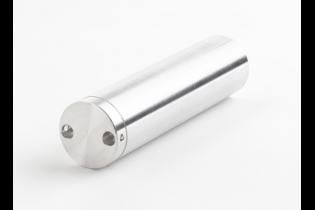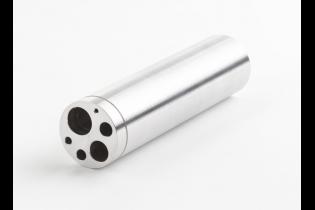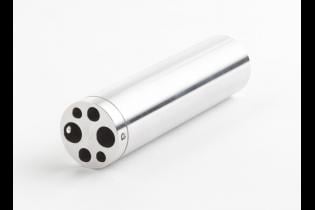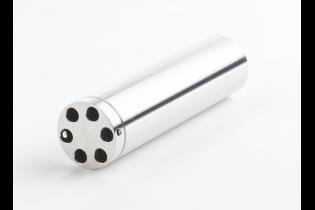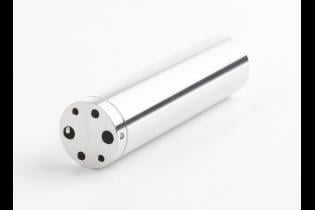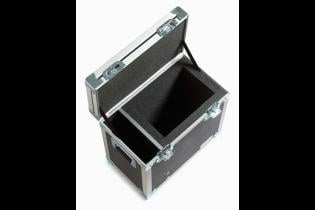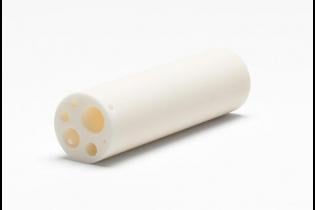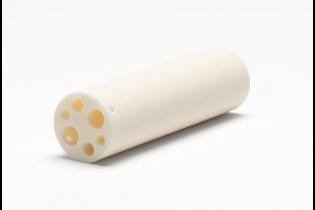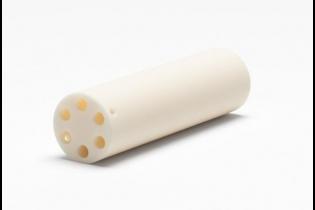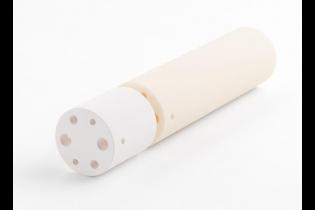Handheld and dry block calibrators for industrial temperature calibration
Industrial temperature calibrators are critical in many industrial processes. A temperature calibrator is used to correct inaccuracies in the thermometers and temperature sensors used for these processes. A temperature source with a calibrated reference sensor is required to provide a complete and meaningful calibration. Fluke Calibration provides a wide range of industrial and field temperature calibrators including: Metrology Wells, Field Metrology Wells, field dry-well calibrators, handheld dry-block calibrators, Micro-Baths, infrared calibrators, and thermocouple furnaces.
Fluke Calibration 4180/4181 Precision IR Calibrators
Now it’s easy to increase your IR temperature measurement accuracy with the new 4180/4181 Hart...
Fluke 9132/9133 Portable Infrared Calibrator with Blackbody Source
Our portable IR calibrators provide stable blackbody targets for calibrating noncontact IR...
9190A-X-P Ultra-Cool Field Metrology Well
The Fluke 9190A Ultra-Cool Field Metrology Well is the most accurate and stable, cold temperature...
Fluke Calibration 6102/7102/7103 Micro-Bath
Hart Scientific manufactures these Micro-Baths for calibration of thermometers and sensors that do...
Fluke Calibration 6109A / 7109A Portable Calibration Baths
The Fluke Calibration 6109A and 7109A Portable Calibration Baths let process industry professionals...
Fluke Calibration 9100S Handheld Dry-Well
Truly portable handheld dry-block temperature calibrators. They’re the smallest, lightest, and...
Fluke Calibration 9102S Handheld Dry-Well
Truly portable handheld dry-block temperature calibrators. They’re the smallest, lightest, and...
Fluke 712B RTD Calibrators
For the temperature calibration professional that wants a highly accurate, easy-to-use, single...
S$3,508.71Fluke Calibration 9144 Metrology Well
The 9144 Series Field Metrology Wells extend high performance to the industrial process environment...
Fluke Calibration 9143 Field Metrology Well
The 9143 Series Field Metrology Wells extend high performance to the industrial process environment...
Fluke Calibration 9142 Field Metrology Well
The 9142 Series Field Metrology Wells extend high performance to the industrial process environment...
Fluke Calibration 9009 Dual-Well Dry-Well
Dry-block thermometer calibrator featuring a hot block and cold block in a single package....
Fluke Calibration 9103/9140 Field Dry-Well
If you’ve been using dry-well calibrators for field work, you know there’s a lot more to a...
Fluke Calibration 9170 Metrology Well
Combining bath-level performance with dry-well functionality and legitimate reference thermometry,...
Fluke Calibration 9171 Metrology Well
9171 Metrology Wells. Now we’ve combined bath-level performance with dry-well functionality and...
Fluke Calibration 9172 Metrology Well
9172 Metrology Wells. Now we’ve combined bath-level performance with dry-well functionality and...
Fluke Calibration 9173 Metrology Well
9173 Metrology Wells. Now we’ve combined bath-level performance with dry-well functionality and...
9101 Zero-Point Dry-Well
Three well zero point thermometer calibrator eliminates the possibility that the sealed water cell...
9118A Thermocouple Calibration Furnace
The Fluke Calibration 9118A Thermocouple Calibration Furnace is a horizontal, open-ended tube...
Fluke Calibration 9150 Thermocouple Furnace
9150 Thermocouple Furnace uses Hart’s own microprocessor-based controller for great stability and...
Handheld and dry block calibrators frequently asked questions
What is the use of a handheld calibrator?
Handheld calibrators are portable temperature calibration tools designed for convenience and efficiency in the field. They are used to verify and adjust the accuracy of temperature sensors and thermometers in various applications, such as ensuring precise temperatures in manufacturing, maintaining accurate readings in HVAC/R systems, calibrating vehicle sensors, and verifying temperature accuracy in food processing. Handheld calibrators are compact, lightweight, and durable, making them ideal for field use, and they offer fast response times and wide temperature ranges to meet diverse needs.
What is dry block calibration?
Dry-block calibration is a highly accurate temperature calibration method that uses a dry-block calibrator to provide a stable and uniform temperature source. These calibrators have a metal block with precision-drilled holes for inserting temperature sensors or thermometers.
One of the primary advantages of dry-block calibrators is that they do not require liquids, which can be expensive to maintain/replenish, sometimes hazardous, and can limit the device's portability. This makes them a more convenient and safer option compared to liquid-based calibration methods. However, it's important to note that dry wells are more limited in the types of probes they can accommodate, generally accepting only cylindrical probes of specified diameters.
Dry block calibration is essential in various industries, such as laboratory settings, pharmaceutical manufacturing, aerospace, and metrology, where high accuracy and precision are critical. Dry block calibrators offer excellent temperature stability, uniformity, and wide temperature ranges to accommodate various sensor types and sizes.









